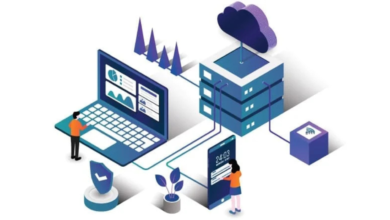In today’s fast-paced digital world, businesses strive to deliver personalized customer experiences. A unified customer profile can be a crucial tool for bridging this gap. By combining data from various sources, businesses can create a complete picture of each customer, ensuring both teams work towards the same goals. This article explores how a unified customer profile, supported by a data management platform, can significantly enhance marketing and sales alignment.
What is a Unified Customer Profile?
A customer data management platform is critical for gathering and organizing data in one place, making it easily accessible for both marketing and sales teams. Businesses can gain valuable insights into customer behavior by integrating data from multiple channels, such as website visits, email interactions, and social media engagement.
This consolidated profile clearly explains customer preferences, pain points, and buying history. When marketing and sales teams work with the same data, they can deliver a more consistent and personalized customer experience, improving the chances of conversion.
Improved Communication Between Teams
One of the major benefits of using unified customer profiles is improved communication between marketing and sales teams. Often, these teams operate in silos, with marketing focusing on generating leads and sales working on closing deals. This lack of communication can lead to missed opportunities and inefficiencies.
With unified customer profiles, marketing and sales teams can access the same data set. Marketing can focus on generating leads that are more likely to convert, while sales can tailor their approach based on the information provided by marketing. This shared understanding fosters collaboration and results in a more streamlined customer journey.
Enhanced Personalization for Customers
Personalization is a key factor in today’s competitive market. Customers expect tailored experiences that address their specific needs and preferences. A unified customer profile allows businesses to deliver on these expectations by providing a detailed view of each customer.
By leveraging data from various sources, marketing teams can create personalized campaigns that resonate with their target audience. This personalized approach not only increases customer satisfaction but also boosts conversion rates.
Acxiom states, “Understanding what people want, need, and prefer enables brands to deliver customer experiences so relevant and respectful, people feel confident that they’re finding and engaging with brands on their terms.”
Better Lead Scoring and Qualification
Lead scoring is essential for prioritizing leads based on their likelihood to convert. A unified customer profile offers valuable insights into a customer’s behavior and engagement with the brand, enabling more accurate lead scoring.
Marketing teams can use this data to identify high-potential leads, ensuring they are passed on to the sales team at the right time. Armed with detailed customer profiles, sales teams can confidently approach these leads, knowing they have the information needed to close the deal. This alignment between lead generation and conversion efforts reduces wasted resources and improves efficiency.
Increased Customer Retention
Customer retention is just as important as acquiring new customers, if not more so. A unified customer profile enables businesses to provide ongoing customer value, ensuring long-term relationships.
By continuously updating customer profiles with new data, businesses can identify opportunities for upselling, cross-selling, and re-engagement. Marketing and sales teams can work together to nurture existing relationships by offering relevant products or services based on the customer’s evolving needs. This proactive approach helps increase customer loyalty and retention, driving long-term growth.
By integrating data from various touchpoints through a customer data management platform, businesses can ensure that both teams work together to deliver personalized experiences. This improved communication leads to better lead scoring, enhanced personalization, and increased customer retention. In an increasingly data-driven world, the ability to create a unified customer profile is essential for businesses seeking to stay competitive and meet their customers’ growing expectations.




